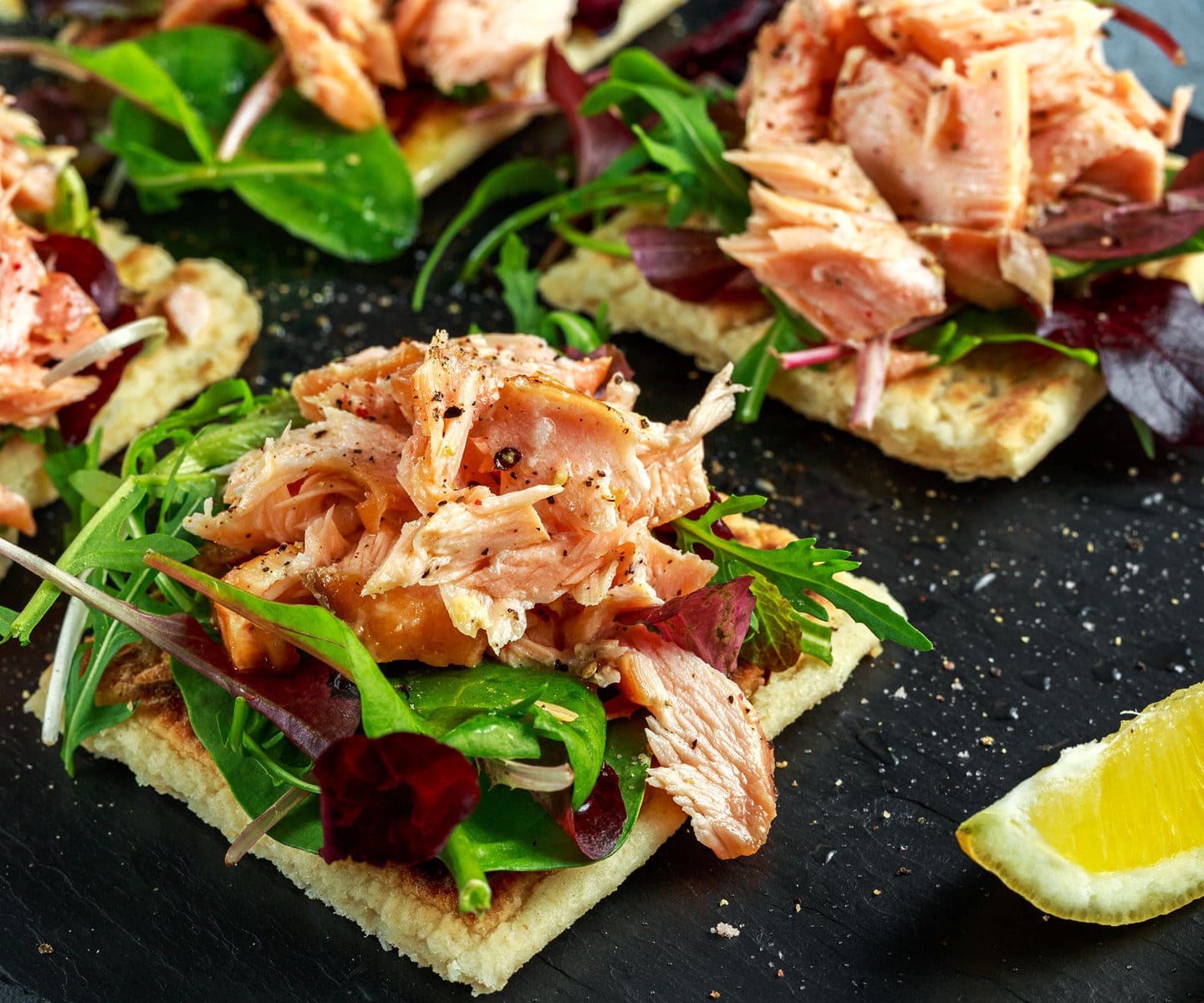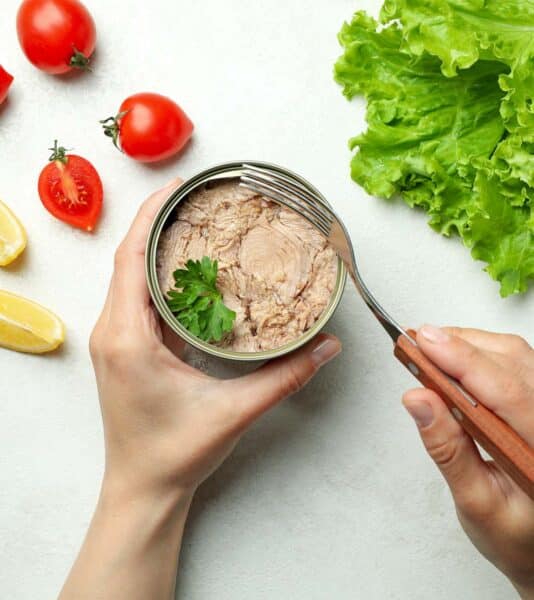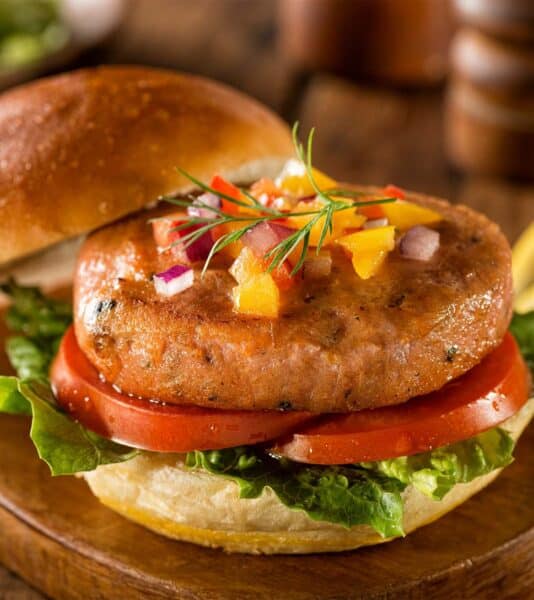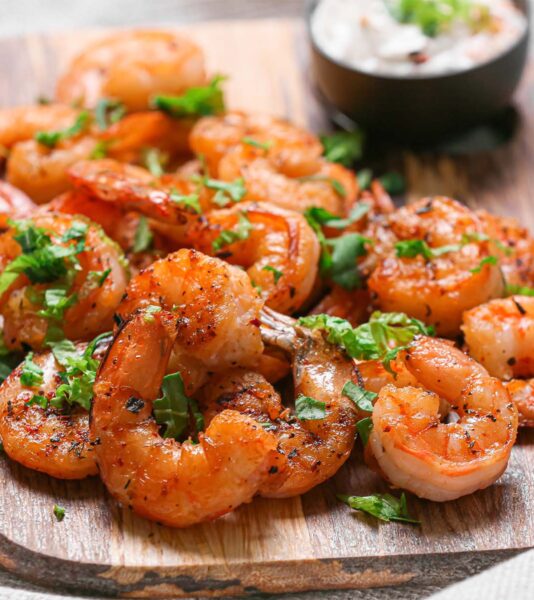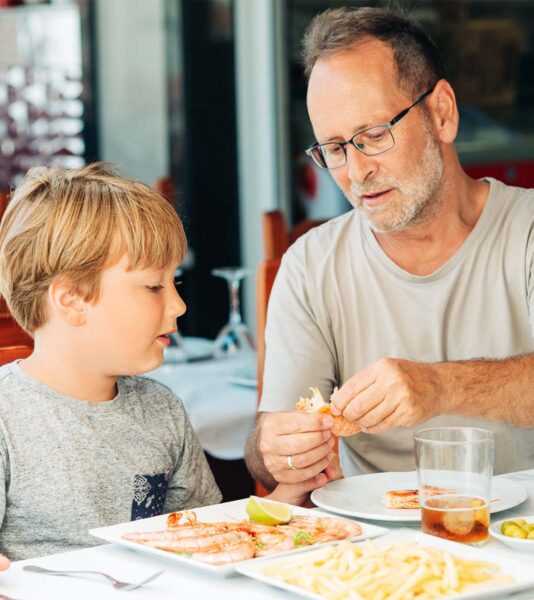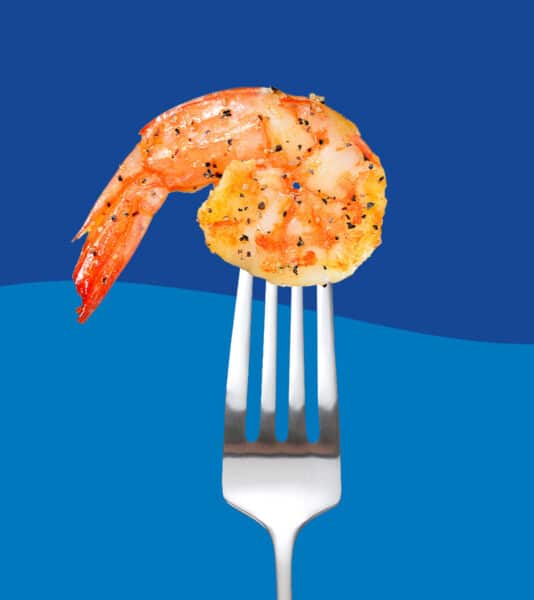Salmon is one of the most popular fish in the U.S., and October 8 is the officially recognized day for celebrating the health, taste, convenience and diverse recipe benefits of the world’s most popular pink fish. In honor of the day, here are some true-and-false questions about salmon. Try them out!
Salmon nutrition, sustainability, and foodservice menus
True or false? Two out of 5 consumers believe salmon is a healthier choice than meat.
TRUE, as confirmed by a Technomic’s Center of the Plate: Seafood & Vegetarian Trend Report.
True or false? Eating fish like salmon promotes brain development.TRUE, says Oregon State University.
True or false? The omega-3s in salmon can lower blood pressure and protect the heart from arrhythmia.
TRUE, according to Harvard School of Public Health.
True or false? Among seafood, salmon has one of the highest levels of omega-3s (EPA and DHA).
TRUE. (Harvard School of Public Health)
True or False? In the foodservice arena, adults are ordering more seafood like salmon for takeout or delivery today.
TRUE, as explained in the free CE course, Advances in Seafood Nutrition.
True or False? Protein in seafood is harder to digest than that of red meat and poultry.
FALSE. Protein in seafood is easier to digest than that of red meat and poultry because it has less connective tissue. (See Advances in Seafood Nutrition).
True or False? Atlantic salmon is more closely related to brown trout than to Pacific salmon.
TRUE, and Atlantic vs. Pacific are related, but different species of fish, according to Oregon State University.
True or False? Farmed salmon in the marketplace today can be Pacific or Atlantic salmon species.
FALSE. “Farmed salmon is typically Atlantic salmon. Wild-caught salmon, meanwhile, is usually one of five types of Pacific salmon: chinook (king), sockeye, coho, pink and chum.” (Cleveland Clinic)
True or False? Studies have found contaminants in farmed salmon are generally higher than in wild-caught salmon.
TRUE, notes the Cleveland Clinic.
True or False? In foodservice, salmon is popular only on dinner menus.
FALSE. “Breakfast, lunch and dinner have seen an increase in the number of salmon recipes on restaurant menus and online databases,” according to reporting in Supermarket Perimeter.
True of False? Salmon gets its pink or reddish color from a carotenoid.
TRUE. “The actual color of salmon flesh varies from almost white to light orange, depending on their levels of the carotenoid astaxanthin due to how rich a diet of krill and shrimp the fish feeds on; salmon raised on fish farms are given non-synthetic or artificial coloring in their food,” according to Wikipedia.
True or False? Research has linked eating fish high in omega-3s, like salmon, with a lower risk of cognitive decline and dementia.
TRUE, says the National Institutes of Health. (See Advances in Seafood Nutrition).
True or False? Pregnant consumers who are concerned about mercury should avoid salmon.
FALSE, says the FDA, as explained in Advances in Seafood Nutrition. Salmon is on the FDA’s “Best Choices” list.
True or False? Only about 10% of U.S. consumers express concern about ensuring seafood sustainability.
FALSE. 71% of consumers want to be more knowledgeable about seafood sustainability, as reported by the Food Marketing Institute. (See Advances in Seafood Nutrition).
True or False? The Monterey Bay Aquarium Seafood Watch program recommends purchasing salmon from this Marine Stewardship Council (MSC) certified fishery.
TRUE. Learn more at the Seafood Watch website.
Why not ride the wellness wave this October—and spread some fun facts about salmon? Visit our foodservice recipe collection for menu ideas. Happy National Salmon Day!
